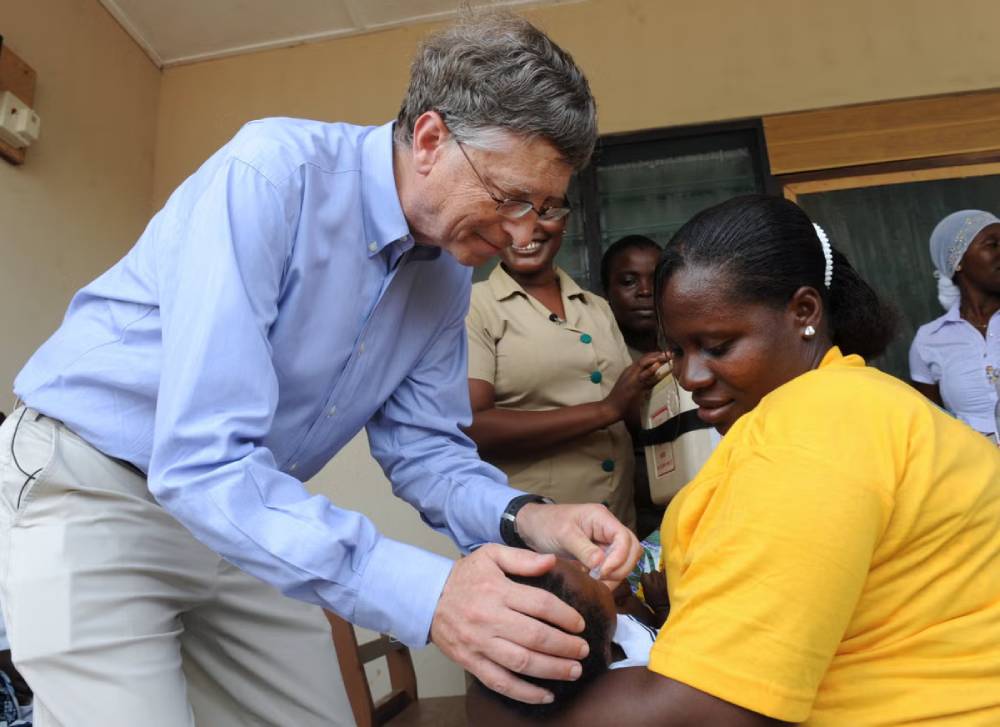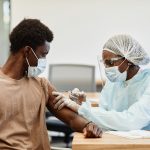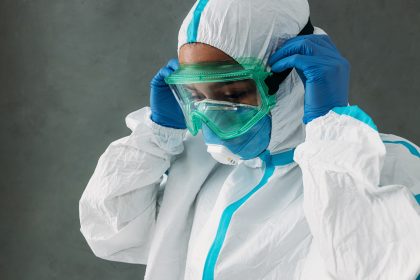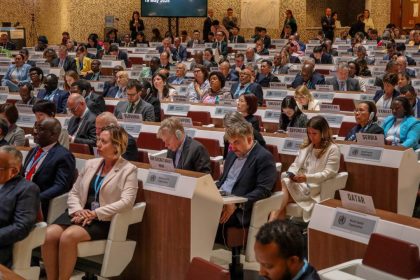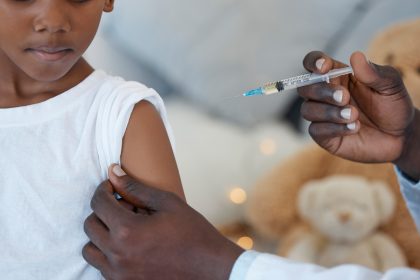Ambitious 20-year plan targets elimination of preventable childhood deaths through sustained global investment
At the 2025 Goalkeepers event in New York, Bill Gates warned world leaders that “humanity is at a crossroads” since millions of children’s lives hang in the balance with global health aid at its lowest in over a decade.
The Microsoft co-founder and philanthropist noted that global health aid has plummeted by 21 per cent between 2024 and 2025, marking a 15-year low that puts vulnerable populations at risk.
“We have made extraordinary progress in reducing child mortality, cutting it in half since 2000,” Gates told world leaders, scientists and advocates. “But this progress is not guaranteed to continue. We cannot allow budget constraints to reverse the gains we’ve fought so hard to achieve.”
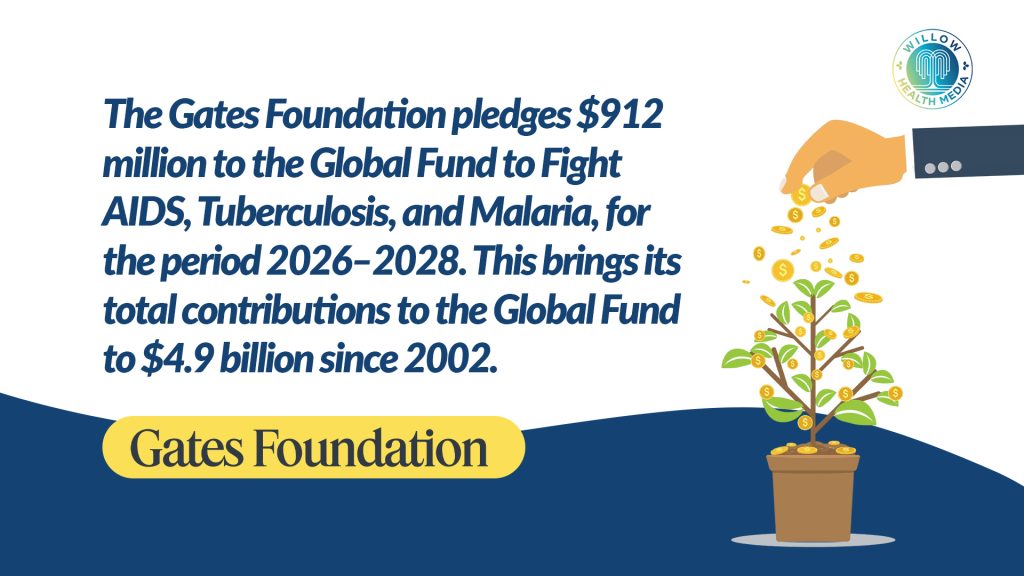
The dire warning comes as the Gates Foundation pledged $912 million to the Global Fund to fight HIV/AIDS, TB and malaria between 2026-2028, bringing its total contributions to the organisation to $4.9 billion since 2002.
The investment underscores the foundation’s confidence in proven interventions. Global Fund has saved more than 70 million lives, reduced HIV/AIDS and malaria deaths by 60 per cent and strengthened global health security since 2000. Each dollar invested in the Global Fund delivers approximately $19 in health and economic returns, making it one of the most cost-effective global health investments available.
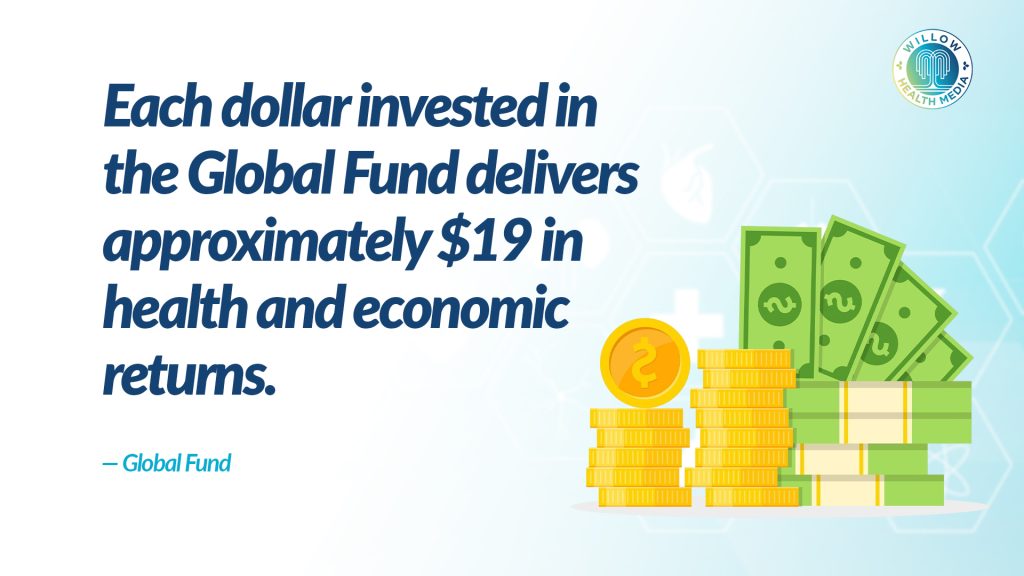
Prioritising primary healthcare to prevent, detect, treat childhood illnesses early
Despite the current funding crisis, Gates presented an ambitious vision for the next two decades. “We have a roadmap for saving millions of children and making some of the deadliest childhood diseases history by 2045,” he asserted, urging world leaders to invest in comprehensive child health initiatives.
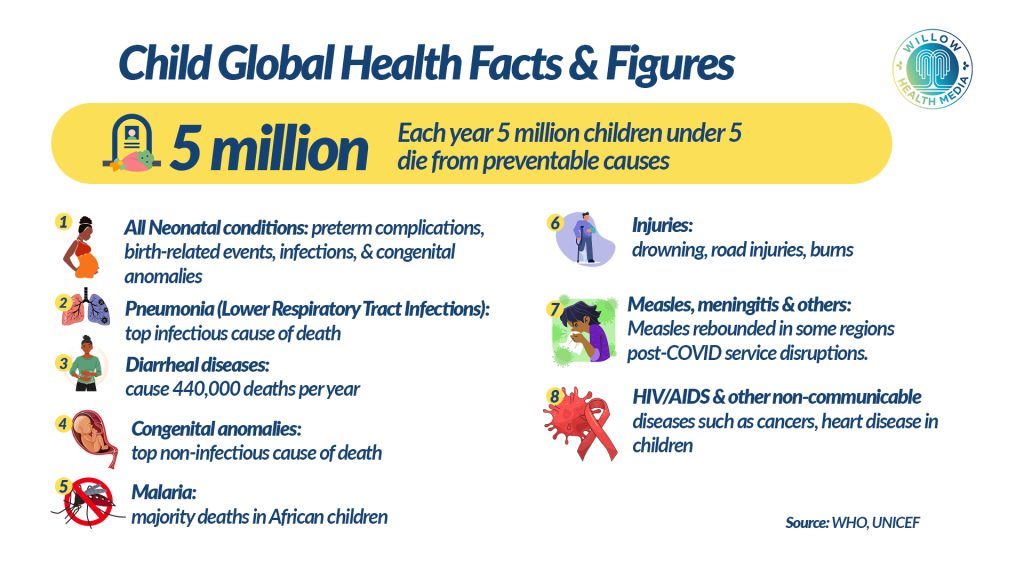
Research conducted by the Gates Foundation in partnership with the Institute for Health Metrics and Evaluation (IHME) suggests that sustaining global investments in child health while scaling lifesaving innovations could cut child deaths in half again over the next 20 years.
The roadmap encompasses three key areas: renewing investments in proven initiatives like the Global Fund and Gavi, the Vaccine Alliance; prioritising primary healthcare systems to prevent, detect, and treat childhood illnesses early; and investing in breakthrough innovations that could revolutionise disease prevention and treatment.
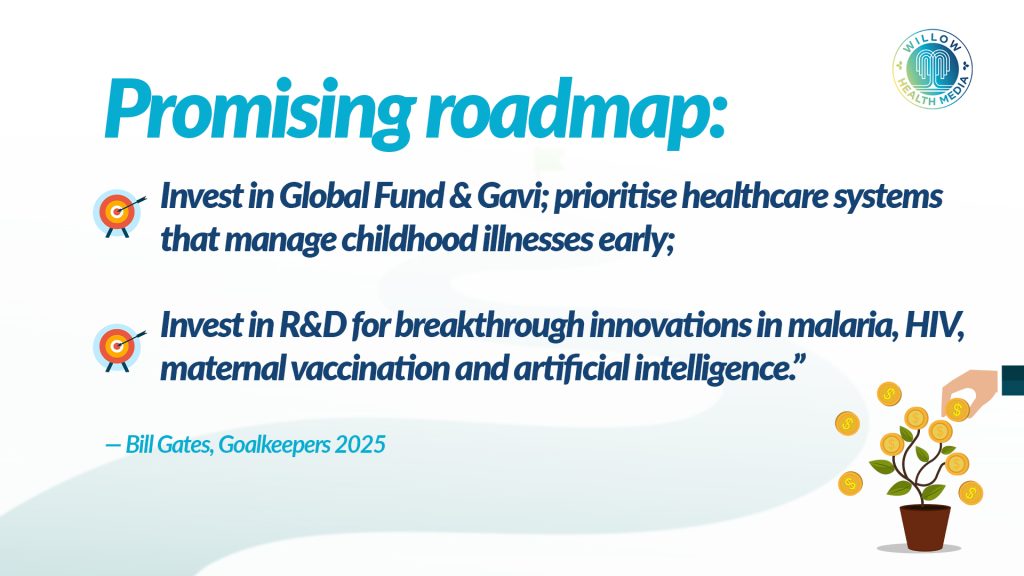
Among the most promising innovations highlighted are new approaches to combating malaria, including gene-drive technologies that prevent mosquitoes from carrying parasites and single-dose treatments designed to accelerate malaria eradication.
For HIV, the foundation is backing long-acting drug lenacapavir and prevention options that could replace daily pills, potentially driving AIDS deaths down to single digits.
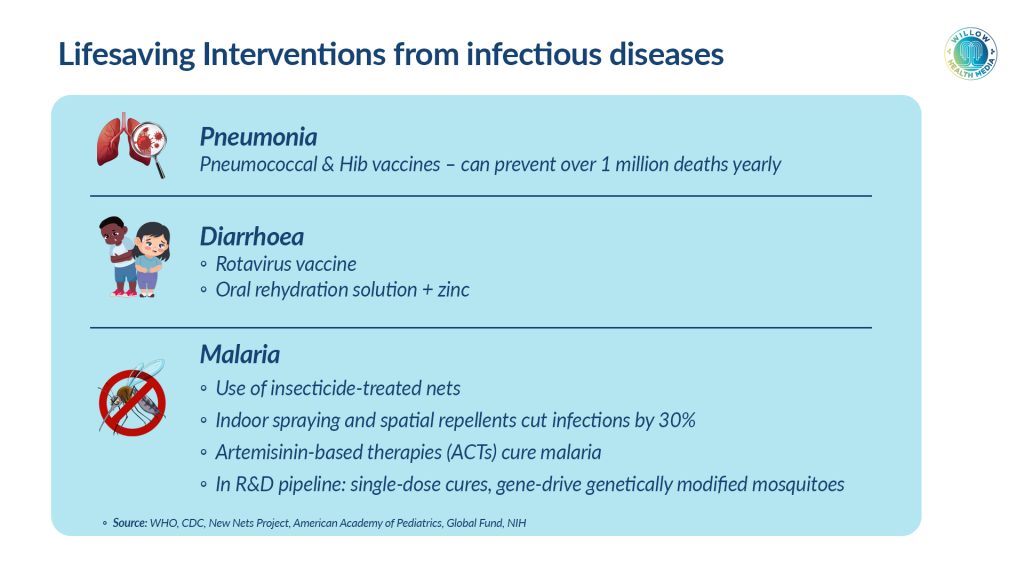
Kenya’s Jerop Limo was recognised for HIV awareness, care for children and families
The roadmap also includes new maternal vaccines against Respiratory Syncytial Virus (RSV) and Group B streptococcus (GBS), which have the potential to protect babies from deadly respiratory illnesses. Additionally, artificial intelligence applications promise to enable smarter, faster, and cheaper delivery of safe, cost-effective medicines.
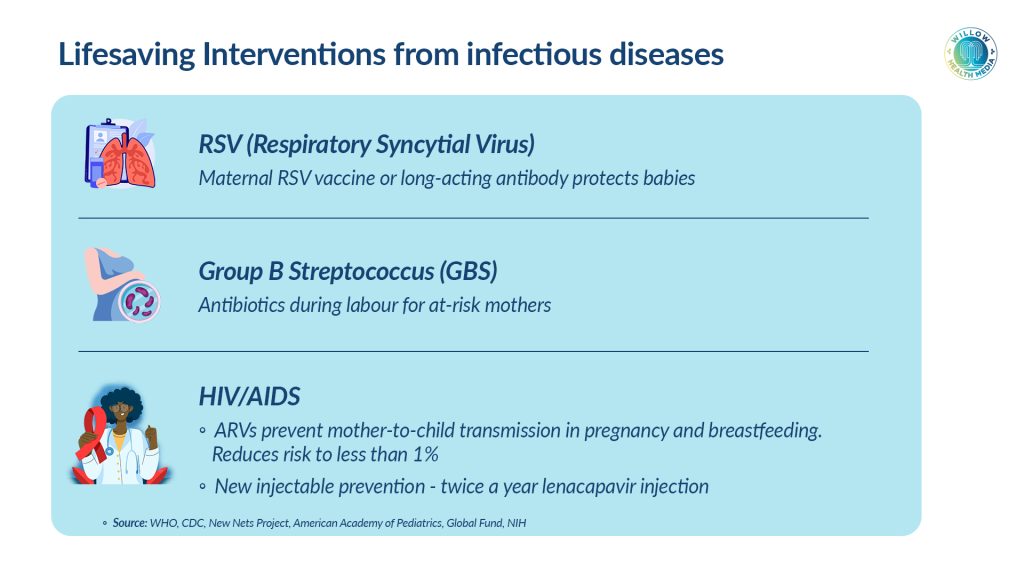
The event recognised leaders and advocates making significant contributions to global health. Spain’s President Pedro Sánchez received the 2025 Global Goalkeeper Award for boosting his country’s contributions to the Global Fund and Gavi by 12 per cent and 30 per cent, respectively and hosting the landmark International Conference on Financing for Development in June 2025.
Ten “Goalkeepers Champions” from around the world were honoured for their work advancing health equity, innovation and child survival. Among them was Jerop Limo from Kenya, who was recognised for advancing HIV awareness and care for children and families across Africa.
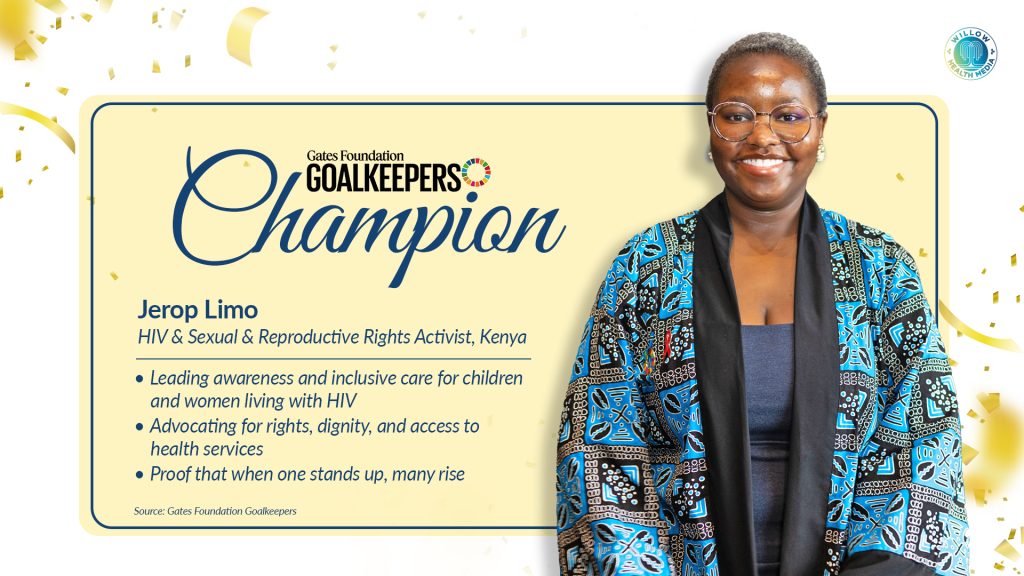
Kenya’s Dr Hellen Barsosio took the stage to discuss her work, which focuses on improving maternal and newborn health, particularly addressing maternal immunisation against RSV and Group B Streptococcus. Margaret Odera narrated her personal story of how a healthcare worker saved her life and inspired her own path as a community health worker.
The event’s theme, “We can’t stop at almost,” served as a reminder to leaders not to halt progress prematurely. The gathering featured changemakers, faith leaders, scientists, and activists sharing stories of resilience and innovation from communities worldwide.
Gates Foundation planning to spend $200 billion over the next 20 years
The Goalkeepers initiative will expand its global reach with an event planned for Abu Dhabi on December 8, 2025, the first ever in the Middle East. The upcoming 2025 Goalkeepers Report will examine how leaders’ choices this year will shape children’s futures for decades to come.
Gates reaffirmed his pledge to give away nearly all his wealth with the Gates Foundation planning to spend $200 billion over the next 20 years, focusing on three primary objectives: ending preventable maternal and child deaths, eliminating deadly infectious diseases, and lifting millions out of poverty- before eventually closing.
As global health faces unprecedented challenges from declining aid, climate change, and persistent inequities, Gates’s message was clear: the international community cannot afford to abandon the progress made in child survival.
The stakes, according to Gates, could not be higher. With proven solutions available and a clear roadmap for success, the question remains whether the global community will summon the political will and financial resources necessary to save millions of young lives.



